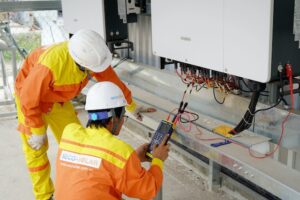If you’re considering solar panels for your home, you may be wondering what you need to know before making a decision. Here is a rundown of the most important factors to consider.
What are solar panels?
Solar panels are panels that collect energy from the sun and convert it into usable electrical energy. They are made up of photovoltaic cells, which are made of semiconductor materials. When sunlight hits the cells, the photons knock electrons free from the atoms, and the electrons flow through the cell to create an electrical current.
In most cases, the current will flow through a wire to an electrical device such as a light bulb or battery. Solar panels are panels that collect energy from the sun and convert it into usable electrical energy. They are made up of photovoltaic cells, which are made of semiconductor materials.
How do solar panels work?
Solar panels work by converting sunlight into electrical energy. The panels are made up of a series of solar cells, which are made of semiconductor materials. When sunlight hits the cells, the energy is converted into electricity. This electricity can be used to power devices or stored in batteries for later use.
Advantages of solar panels
The main advantage of solar panels is that they are a renewable energy source. This means that they rely on natural resources, such as the sun, to create power, which means they are not harmful to the environment. Solar panels are also a great way to reduce your carbon footprint, as they do not produce any emissions.
Disadvantages of solar panels
Solar panels have many advantages, but they also have a few disadvantages. One disadvantage is that they can be expensive to install. Another disadvantage is that they only work when the sun is shining. This means that you need to have a backup plan for when the sun is not shining.
Solar panel rebates and incentives
There are a number of government rebates and incentives available for homeowners who install solar panels. The most common type of rebate is for the purchase of solar panels themselves, often referred to as a “solar PV rebate.” Other common rebates include those for solar hot water systems and solar attic fans.
There are also a number of state and federal tax credits available for solar energy systems. The federal tax credit for solar energy systems is 30% of the cost of the system, with no maximum value. There are also a number of state tax credits available, ranging from 10% to 50% of the cost of the system.
To find out if you’re eligible for any of these rebates and incentives, visit the Database of State Incentives for Renewables and Efficiency (DSIRE) website.
Pros and cons of going solar
There are many pros and cons of going solar. Some of the pros include reducing your carbon footprint, helping the environment, and saving money on your electricity bill. Some of the cons include the initial cost of installing a solar system, the time it takes for the system to pay for itself, and the potential for decreased resale value of your home. It is important to weigh the pros and cons of going solar before making a decision.
Thanks to the increasing popularity of solar panels, there is a lot of information available on the internet. By doing your research and asking questions, you can make an informed decision about whether solar panels are the right choice for you.




